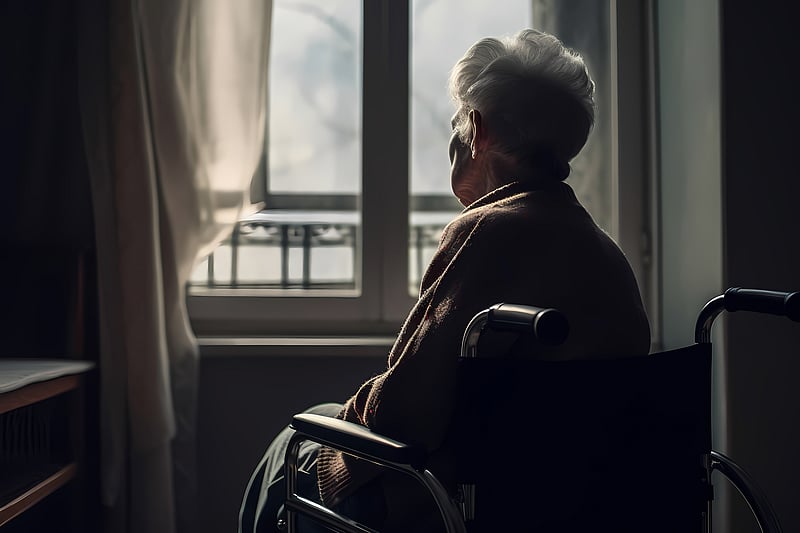Get Healthy!

- Sarah D. Collins
- Posted September 19, 2023
Parkinson's Patients Often Battle a Hidden Foe: Stigma
Patients with Parkinson's disease already face poorer mental and physical health, but now a new study shows they also suffer from decreased levels of hope and self-esteem due to the stigma associated with their disease.
"There are patients who don't even disclose the disease to family members because they're afraid that the children may change their opinion of them or start making plans to put them in a nursing home or take over their finances or freedom to some degree,"said Dr. Alessandro Di Rocco, a professor of neurology at the Zucker School of Medicine at Hofstra/Northwell in Hempstead, N.Y.
The study found that when most people think of Parkinson's, they imagine older white men who are drooling, shaking and hunched over. This singular image can be damaging to people with Parkinson's who differ in race, gender or age, and can lead to misdiagnosis or a delay in diagnosis. Furthermore, those who have several visible, physical symptoms of the disease can face greater stigma and even discrimination.
And those fears are illustrated in the research, which found that more than half of people with Parkinson's conceal their diagnosis for fear of stigma. For example, actor Michael J. Fox, who has Parkinson's and spearheads The Michael J. Fox Foundation for Parkinson's Research, kept his illness hidden for years before coming out to the public. Having symptoms of the disease can lead to anxiety stemming from being identified as a person with a disability, being isolated, and being diminished in character by others, the report said.
Dealing with society's perceptions of Parkinson's can also lead to self-stigma, the report said, which it defined as a negative attitude stemming from internalization of limiting stereotypes about people with the disease. Becoming aware of the inability to perform simple motor tasks can also damage people with Parkinson's self-esteem, the study noted. Self-stigma can lead to depression, anxiety and neglecting to seek health care.
The study was recently published online in the journal Parkinsonism and Related Disorders.
"I think there's a lot of commonalities with people when they first get the diagnosis,"said study co-author Dr. Indu Subramanian, a neurologist at UCLA Health, in Los Angeles. "They're embarrassed, they're ashamed, they feel like they did something to deserve it -- 'Why me?' They isolate, they think they're the only person who's living with this, and they tend to sort of spiral into sometimes very negative thought processes."
Therefore, she said, it's important that family members offer a helping hand.
"Give them time, give them support,"Subramanian said. "If you do see that they're having what looks like anxiety or depression, bring it to the attention of their physician. Getting psychological support, working with a psychologist through certain types of therapies like cognitive behavioral therapy"¦ group exercise or group meditation, yoga, things like that, can connect people to others in this time where they feel kind of alone."
Media and public awareness is also critical to lessening the stigma of Parkinson's, Di Rocco added.
"One of the ways in which the stigma is removed is when the world changes the perception of the disease,"he said. "The way the media represents people with Parkinson's is immensely important. The way that public figures like Michael J. Fox portray, in a very honest way, the challenges and difficulties, but also the abilities, are key."
The Parkinson Foundation defines Parkinson's as a "slowly progressive disease, which causes a gradual loss of the nerve cells in the brain that produce the neurotransmitter dopamine."Dopamine carries signals to the part of the brain controlling movement and coordination, and a loss of it can lead to tremors, slowness and stiffness of the limbs.
Other physical symptoms of Parkinson's include speech changes, loss of automatic movements and hand writing changes. Around 500,000 Americans are diagnosed with the disease, but the U.S. National Institute of Neurological Disorders and Stroke notes that, due to undiagnosed or misdiagnosed cases, the actual number is likely much higher. Parkinson's is currently incurable, but treatment can greatly help ease symptoms.
Even with a Parkinson's diagnosis, continuing to live life to the fullest extent possible is also important, said Subramanian.
"It's important for Parkinson's patients to continue to try to live their life and communicate with others, you know, socialize, not be isolated, try to do exercise, get out in the sunlight, things like that,"she said.
More information
For more on Parkinson's disease, visit The Michael J. Fox Foundation.
SOURCES: Indu Subramanian, MD, department of neurology, David Geffen School of Medicine, UCLA, Parkinson's Disease Research, Education and Clinical Centers, Veterans Administration Greater Los Angeles Health Care System; Alessandro Di Rocco, MD, professor, neurology, Zucker School of Medicine, Hofstra/Northwell, and system director -- neurology, Parkinson's and movement disorders, Northwell Health, Hempstead, N.Y.; Parkinsonism and Related Disorders, Sept. 4, 2023, online

